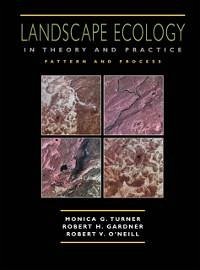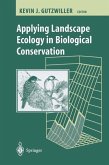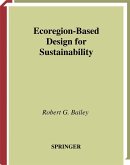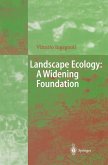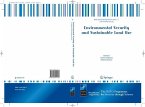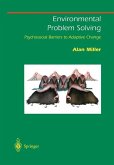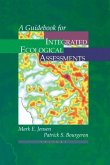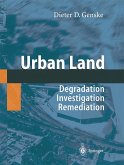An ideal text for students taking a course in landscape ecology. The book has been written by very well-known practitioners and pioneers in the new field of ecological analysis. Landscape ecology has emerged during the past two decades as a new and exciting level of ecological study. Environmental problems such as global climate change, land use change, habitat fragmentation and loss of biodiversity have required ecologists to expand their traditional spatial and temporal scales and the widespread availability of remote imagery, geographic information systems, and desk top computing has permitted the development of spatially explicit analyses. In this new text book this new field of landscape ecology is given the first fully integrated treatment suitable for the student. Throughout, the theoretical developments, modeling approaches and results, and empirical data are merged together, so as not to introduce barriers to the synthesis of the various approaches that constitute an effective ecological synthesis. The book also emphasizes selected topic areas in which landscape ecology has made the most contributions to our understanding of ecological processes, as well as identifying areas where its contributions have been limited. Each chapter features questions for discussion as well as recommended reading.
Dieser Download kann aus rechtlichen Gründen nur mit Rechnungsadresse in A, B, BG, CY, CZ, D, DK, EW, E, FIN, F, GR, HR, H, IRL, I, LT, L, LR, M, NL, PL, P, R, S, SLO, SK ausgeliefert werden.
From the reviews:
"Having a thorough textbook that explains the principles and techniques of landscape ecology is an important resource. ... This book takes a North American approach at an introductory level, filling a void in the landscape ecology literature. ... The discussion questions and recommended readings at the end of each chapter guide teaching and learning. ... The text is a real boon to professors and students. ... The book is a thorough treatment of the current activities of landscape ecology, and I recommend it highly." (Nancy E. McIntyre, Ecology, 83 (1), 2002)
"An ecologist's viewpoint on the theories and uses of a burgeoning multidisciplinary subject is proffered. ... It is an informative, comprehensive, up-to-date and generally well-written account which will be of considerable use to its target readership of advanced undergraduate, postgraduate and professional ecologists." (Robert Jones, Geography, October, 2002)
"All chapters end witha series of stimulating questions for discussion and some well-selected recommendations for further reading. ... This is not an introductory text; it assumes, for example, a background knowledge of GIS, fractal geometry, and modelling principles. It will therefore prove useful for advanced undergraduate or postgraduate courses in this discipline." (Bulletin of the British Ecological Society, Vol. 33 (1), 2002)
"Having a thorough textbook that explains the principles and techniques of landscape ecology is an important resource. ... This book takes a North American approach at an introductory level, filling a void in the landscape ecology literature. ... The discussion questions and recommended readings at the end of each chapter guide teaching and learning. ... The text is a real boon to professors and students. ... The book is a thorough treatment of the current activities of landscape ecology, and I recommend it highly." (Nancy E. McIntyre, Ecology, 83 (1), 2002)
"An ecologist's viewpoint on the theories and uses of a burgeoning multidisciplinary subject is proffered. ... It is an informative, comprehensive, up-to-date and generally well-written account which will be of considerable use to its target readership of advanced undergraduate, postgraduate and professional ecologists." (Robert Jones, Geography, October, 2002)
"All chapters end witha series of stimulating questions for discussion and some well-selected recommendations for further reading. ... This is not an introductory text; it assumes, for example, a background knowledge of GIS, fractal geometry, and modelling principles. It will therefore prove useful for advanced undergraduate or postgraduate courses in this discipline." (Bulletin of the British Ecological Society, Vol. 33 (1), 2002)

